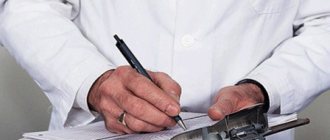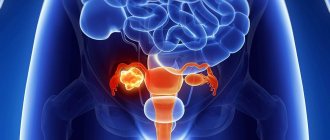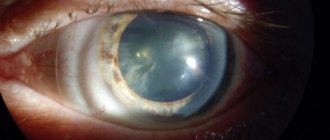Urologist is a specialist responsible for the diagnosis, prevention and treatment of diseases of the genitourinary system (bladder, testicles, prostate gland, urethra, penis, underlying systems and organs). Modern urology also has such areas as andrology and urogynecology. It is precisely because of this specific area that many people are embarrassed to go to this doctor, and when the appointment cannot be postponed, they do not know how to prepare for an examination by a urologist. Here you will learn when it is still necessary to see a urologist, how to prepare for the appointment and how the examination is carried out.
When and why you should see a urologist
One of the most common reasons for visiting a urologist is prostatitis. According to statistics, every second man meets him by the age of 40. However, this is just one of the pathologies; there are many diseases related to the practice of a urologist.
Often urological diseases are hidden. For example, an adenoma, cyst, tumor, prostate cancer, or kidney stones can be asymptomatic. Therefore, every person (especially men) should be examined by a urologist twice a year. In addition, there are symptoms that indicate the importance of an early visit to this doctor.
It could be:
- urinary incontinence;
- renal colic;
- nagging and aching pain in the lumbar area;
- pain when urinating;
- bloody or purulent discharge in the urine;
- discomfort in the urethra;
- difficulties in the intimate sphere (rapid ejaculation, problems with erection);
- swelling of the lower extremities, face;
- difficulty urinating, frequent urge.
If you notice these signs in yourself or your child, immediately make an appointment with a good clinic. In St. Petersburg, for example, you can contact an experienced urologist-andrologist at the Raduga clinic. The doctor will see you without a queue, and here you can undergo all the tests necessary to make a diagnosis. Remember that an annual visit to a professional urologist is an effective prevention of many diseases.
When should you contact a urologist?
You should consult a doctor regardless of age, if at 15, 25, 30 or 50 years old a man notices the following symptoms:
- Blood in urine/semen
- Difficulty urinating/sluggish stream
- Frequent urination
- Feeling of cutting/pain when urinating
- The appearance of any discharge from the urethra
- Difficulty/painful opening of the glans penis
- The appearance of rashes/redness/growths on the penis
- Periodic sharp pain in the right or left testicle
- Constant aching/pulling pain in one of the testicles
- The size of one of the testicles has visually changed, swelling has appeared
- When palpated, the shape of the testicles has changed (you should pay attention to any neoplasms, such as compactions, nodules)
However, even without these symptoms, every man over 25 years old should definitely visit a urologist 2 times a year for the purpose of prevention and early diagnosis of urological diseases.
Don't put off going to the doctor if something is bothering you. Timely diagnosis and treatment will not cause you discomfort and will help you get rid of the problem in the early stages. You should not aggravate the situation with your inaction, because the more advanced the disease is, the more difficult it will be to recover.
For advice on any issues of concern, you can contact the Health MC network and receive competent assistance from a specialist. Be healthy!
How to prepare for a visit to the urologist
You cannot go to an appointment with a urologist spontaneously; before visiting a doctor, you must comply with a number of mandatory conditions. The following rules will help the patient effectively prepare for a urological examination.
- Abstinence from sexual intercourse. Ejaculation and sexual contact are excluded a couple of days before going to the urologist. This will allow the specialist to take the necessary tests at the first appointment.
- Bowel movement. A rectal examination of the prostate involves a preliminary bowel movement. If there are difficulties with bowel movements (constipation), a cleansing enema will help.
- Prohibition of urination. The bladder must remain full for the most informative study of the genital and excretory organs. You should not urinate about two hours before your urological examination.
Of course, before going to the urologist, take a shower and put on fresh underwear.
Preparing to see a urologist
To conduct this or that type of examination efficiently, special training is required.
1. Laboratory diagnostics
General rules when preparing for laboratory tests:
- Warn your doctor about the medications you are taking two days before laboratory tests.
- Avoid drinking alcoholic beverages.
- Do not eat salty, fatty or spicy foods.
- Avoid smoking at least two hours before your test.
- Protect yourself from stress and emotional overload.
Blood analysis
Preparation:
- You can drink still water
- Blood should not be donated after a rectal examination or physical therapy procedures.
- If the situation is emergency and laboratory tests need to be carried out urgently, the patient must refrain from eating at least 4 hours before donating blood
| Type of analysis | Time of day for analysis | Food restrictions | Special training |
| General blood analysis | Morning | On an empty stomach: at least 4 hours after the last (not heavy) meal | Not required |
| Blood biochemistry | Morning | On an empty stomach: at least 4 hours after the last (not heavy) meal | Not required |
| Glucose, insulin, cholesterol, pepsin enzymes | Morning | Strictly on an empty stomach: at least 8 hours after the last meal | Required |
| Triglycerides and cholesterol LDL and HDL | Morning | Strictly on an empty stomach: at least 8-14 hours after the last meal | Not required |
| Hormones | Morning/during the day | On an empty stomach: at least 4 hours after the last (not heavy) meal | According to the MC for women |
| Tumor markers | During the day | On an empty stomach: at least 4 hours after the last (not heavy) meal | Not required |
Analysis of urine
To obtain reliable results of a urine test, it is necessary to carefully observe the rules of hygiene of the external genitalia before collecting material for analysis. Urine should be collected after thorough toileting of the external genitalia in a container specially designed for this purpose. The first morning urine is collected for analysis.
- Wash your hands with soap
- Wash the external genital area
- Collect a medium amount of urine in a container
- Close the container carefully with the lid.
- Avoid freezing urine during transport
Do not store biomaterial for more than 2 hours before submitting analysis to the laboratory.
Microscopy of prostate juice
- It is forbidden to drink alcohol 5 days before the procedure
- On the day of the test you need to do an enema
- Before taking the test, you need to go to the toilet
- It is advisable to abstain from sexual intercourse for several days before the process.
Urogenital smear
When preparing to take an STI test, you must follow the following rules:
- do not urinate two hours before collecting biomaterial
- abstain from sexual intercourse for two days, including using a condom
- Do not use antibacterial gels for intimate hygiene for several days before the test
- do not use medications that may affect test results
Spermogram
- It is recommended to abstain from ejaculation for 3-4 days
- It is not recommended to drink alcohol, visit the bathhouse or sauna (7 days)
- It is necessary to inform your doctor about the medications you are taking.
- On the eve of the test, avoid heavy physical activity, conflict situations, and get a good night’s sleep.
2. Ultrasound diagnostics
— Kidneys
No preparation required.
— Bladder
The examination is carried out with a full bladder, so it is necessary not to urinate for 1-2 hours before the examination and drink 1 liter of non-carbonated liquid 1 hour before the procedure.
— Prostate gland t/a
The examination is carried out with a full bladder, so it is necessary not to urinate for 1-2 hours before the examination and drink 1 liter of non-carbonated liquid 1 hour before the procedure.
— Scrotum
It is recommended to shave the hair in the groin area.
— Penis
No preparation required.
— TRUS (transrectal ultrasound examination of the prostate)
The examination is carried out with a full bladder, so it is necessary not to urinate for 1-2 hours before the examination and drink 1 liter of non-carbonated liquid 1 hour before the procedure. It is necessary to do a cleansing enema before the procedure.
3. Prostate biopsy
- For 7 days before the biopsy, do not take medications that affect blood clotting (aspirin, heparin, syncumar, phenylin, etc.)
- Stop taking anti-inflammatory medications 3 days before the biopsy
- 24 hours before the procedure, avoid heavy foods and strong alcoholic drinks.
- In the evening and morning before the test, do a cleansing enema
- The study is carried out on an empty stomach
- Start antibiotic therapy 2 hours before the procedure and continue after the procedure as prescribed by your doctor.
4. Cystoscopy
- Take a shower on the day of the procedure
- Relax before the procedure
- Eliminate alcohol for a few days
- Take pain medication an hour before the procedure
5. Replacement/installation of cystostomy drainage
Take a pain reliever one hour before the procedure.
How does a good urologist conduct an examination?
Anamnesis is where a urological consultation begins. The specialist interviews the patient, finds out his complaints, and studies the medical history. Next comes an examination, the method of which depends on the age and gender of the patient, but in any case, a good doctor will never hurt, so there is no need to be afraid.
- Man. The urologist examines and evaluates the condition of the inguinal lymph nodes, scrotum, penis, prostate gland (finger palpation is done through the anus). Examination can be painful only with acute prostatitis. The specialist warns the patient about this in advance.
- Woman. For an informative and objective examination of the condition of the bladder and ureter, the urologist can examine the patient on a gynecological chair. This also makes it possible to detect prolapse (prolapse of organs) and diagnose vaginal dryness. As a rule, the examination is painless.
- Child. Examination of pediatric patients is carried out in the presence of parents. It is advisable to take your child to a pediatric urologist at least once a year, starting from the first months. As a result, pathologies can be diagnosed at an early stage.
If necessary, all patients are prescribed additional studies. A good urologist will certainly have modern X-ray units in his arsenal, combining minimal radiation exposure and maximum information content. Laboratory tests (blood tests, urine tests, prostate secretions, etc.) may also be required. As mentioned above, it is better to go to a clinic where all procedures can be completed on site, using good equipment, such as, for example, at the Raduga clinic. This will save time and get an accurate diagnosis.
How often should men visit a urologist?
The importance and frequency of urological examinations
More and more men, regardless of age, are experiencing problems with the genitourinary system. The reason for this is an unhealthy lifestyle, stress, and unfavorable environmental conditions. At the same time, many are ashamed to contact a urologist and endure until the last minute, which often leads to advanced, chronic forms of the disease. However, most diseases can be avoided if you are periodically examined by a doctor.
Causes and types of urological diseases
The objects of study of urology include pathologies of the genitourinary system. An examination by a urologist consists of a set of procedures for diagnosing, preventing and treating urological diseases. Many of them have mild symptoms. If you do not find out in time the causes of the slightest discomfort when urinating or working the genitals, the development of the disease can lead to disastrous results over time.
Urological pathologies can be divided into several main groups:
- Problems of the urinary system.
- Prostate diseases – prostatitis, adenoma, prostate cancer.
- Disorders of the genital organs, erectile dysfunction.
- Diseases of the reproductive system leading to infertility.
The causes of disorders of sexual and urinary functions can be physiological, somatic, or psychological. To accurately determine them, one examination of the patient is not enough. It will be necessary to conduct a biochemical analysis of urine, blood, and in many cases, ultrasound diagnostics, endoscopic, and urodynamic studies. To identify serious pathologies, it is necessary to conduct computed tomography, MRI and other methods using medical equipment.
The most common causes of dysfunction of the reproductive organs and urinary tract include the following factors:
- lack of physical activity, sedentary work;
- environmental pollution, atmospheric pollution;
- lack of personal hygiene;
- stress, overwork, depression;
- infectious, chronic diseases that lead to disorder and depletion of the body as a whole;
- hypothermia, various injuries, bruises, damage to the genital area;
- irregular meals;
- smoking, drinking alcohol, drugs;
- unhealthy diet, including large amounts of fried, fatty, high-calorie foods.
In some cases, even seemingly insignificant details can lead to sexual dysfunction. For example, incorrectly selected, too narrow, tight-fitting underwear made of dense synthetic materials. Such items of clothing do not allow the skin to breathe, they compress blood vessels, disrupting blood circulation.
The main manifestations of problems of the genitourinary system
Men, especially young men, do not always attach great importance to discomfort during sexual intercourse or urination. They are considered to be insignificant, temporary difficulties caused by external factors. However, many of these manifestations may be signs of the initial stage of the disease.
Without waiting for the consequences, you should immediately contact a urologist if you have the following symptoms:
- Frequent, albeit minor, pain or itching in the groin and lower abdomen. Constant feeling of heaviness in the abdominal cavity.
- The appearance of blood formations in urine and semen. Uncharacteristic discharge from the penis.
- Accumulations of mucus with a pungent, unpleasant odor on the head of the penis.
- Decreased libido, weakened erection, problematic ejaculation.
- Inflammation, swelling, rashes, red spots on the skin of the genitals, perineum.
- Difficulty urinating. Incomplete emptying of the bladder.
Some dangerous pathologies, such as cancer, remain virtually asymptomatic for a long time. Their development can be identified and stopped only through regular examinations using diagnostic medical equipment.
How to properly prepare for an examination with a urologist
Before visiting the urology office, you must follow these rules:
- Avoid drinking any drinks containing alcohol for several days.
- 2-3 days before your doctor’s appointment, refrain from performing intimate acts.
- Before going to the clinic, completely empty your bowels. This will avoid uncomfortable situations if a rectal examination or endoscopic examination is needed.
- Immediately before the visit, take a shower, wash well, and put on clean underwear.
If a man has previously been treated by another urologist, he must take with him a medical history, the results of previous examinations and tests, a list of prescribed medications and procedures. At an appointment with a doctor, without false hesitation, you should talk about problems with the health of the genitourinary system, including urination disorders and sexual functions. It is necessary to honestly answer the specialist’s questions about lifestyle, characteristics of the intimate sphere, diet, recent illnesses, infections, and injuries. Any detail can help the doctor establish the correct diagnosis.
In addition to the interview, the urologist needs to examine the patient’s genitals, palpate the groin area and lower abdomen. If you have symptoms, you need to take blood tests, urine tests, and flora smears. In case of pronounced manifestations of pathologies, a more detailed examination will be required. Comprehensive diagnostics will allow you to create a detailed picture of your health status, select medications, and prescribe a course of treatment.
Frequency of visits to the urologist
Regular urological examinations are the most reliable way to avoid problems with the health of the genitourinary system. At the same time, a man’s age does not play a big role, since the causes of many diseases are an incorrect lifestyle and negative environmental conditions. In addition, many young people are characterized by frequent changes of partners and promiscuous intimate relationships. Various types of viral, bacterial, protozoal, and fungal infections are transmitted sexually. The diseases caused by these infections often occur latently and are difficult to detect with a simple examination. If you are sexually active, you should be examined by a urologist every six months.
It is also recommended that men after forty years undergo preventive examinations twice a year. At this age, testosterone production decreases, immunity deteriorates, which leads to erectile dysfunction and prostate problems. In other cases, visiting a urologist once a year is enough and you must make an appointment with a doctor immediately after the symptoms of pathologies appear.










